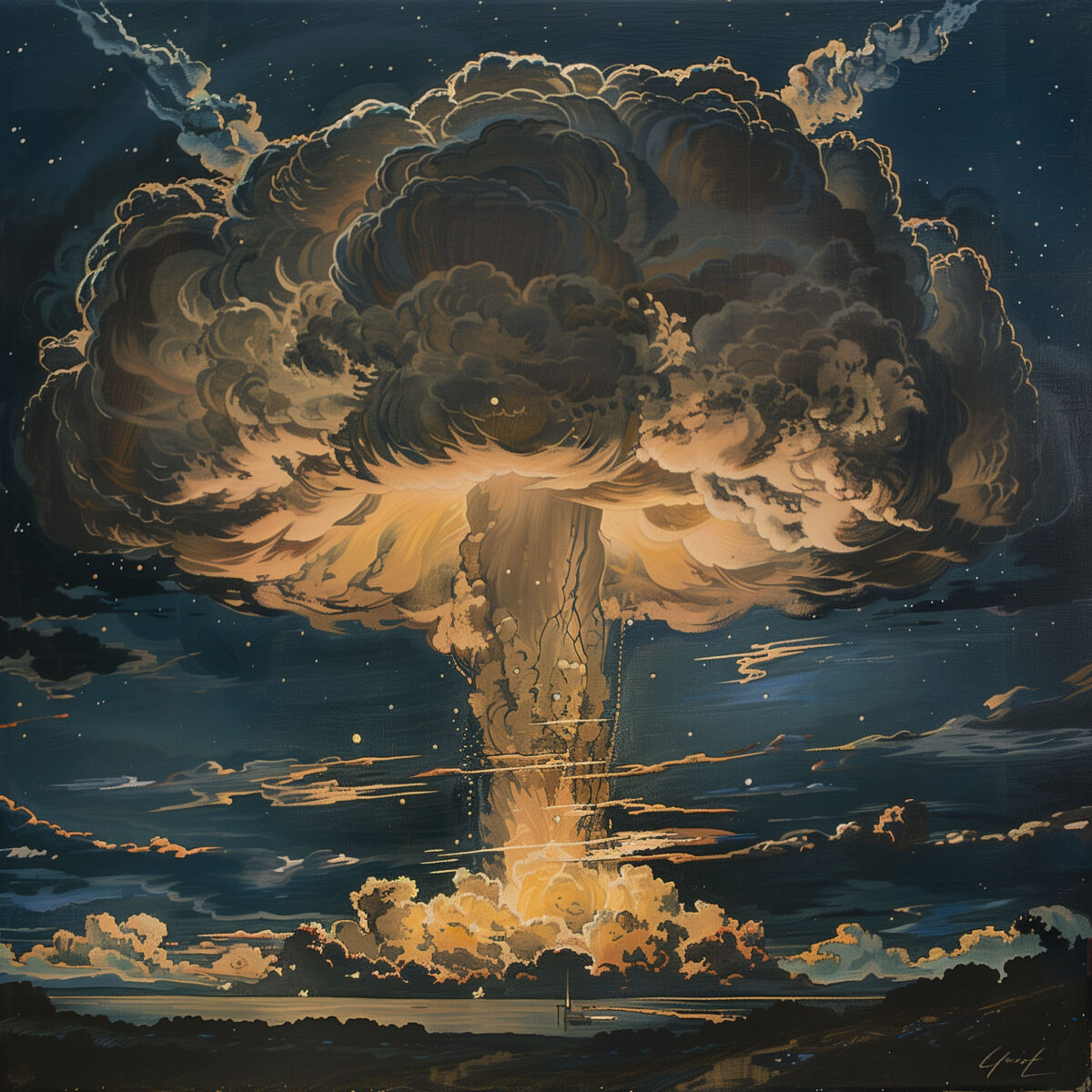President Harry S. Truman’s orders for atomic attacks on Hiroshima and Nagasaki on Aug. 6 and 9, 1945, were among the most important and controversial decisions of the 20th century. Critics have decried the immense loss of life in the strikes—70,000 to 80,000 people at Hiroshima and up to 75,000 at Nagasaki—to say nothing of the wounded and the thousands more who died of radiation poisoning in later years. Truman’s supporters have pointed out that many more people—perhaps 1 million Japanese soldiers and civilians, and untold thousands more Allied troops—would have died had the bombs not been dropped. Regretting the thousands who died at Hiroshima and Nagasaki is fatuous, they suggest, without also considering the hundreds of thousands who lived because the invasion of Japan never took place.
Truman had much more to think about than the immediate human cost. He had to look to the long term. At stake were major geopolitical factors with global repercussions. And there was no clear choice between invading Japan or dropping the bombs and not invading Japan. In either case, he had no way of knowing whether Japan’s leaders would surrender or continue to fight. He might have to drop the bombs and order an invasion. Underlying all was the consideration of time. Could the United States and the world face the repercussions of another year of war?
Invading Japan was the obvious, but not the only, alternative to employing atomic weaponry. Some historians have pointed out that the destruction of Japan’s merchant fleet—reduced by a staggering 75 percent to less than 1.5 million tons of shipping by 1945 —left the main islands vulnerable to a campaign of slow strangulation that would have made an invasion unnecessary. Yet the always resilient Japanese might well have endured a full blockade for years. The resulting malnutrition and disease inevitably would have had the greatest impact on the most vulnerable members of society—especially children—and left Japan a wasteland.
Negotiation was never a serious option. Tentative Japanese attempts to “reach out” to the United States through intermediaries seemed, and probably were, stalling tactics. Truman might have followed up the July 26 Potsdam Declaration, calling for Japan’s unconditional surrender, by openly disclosing the existence of atomic weaponry, which had only been successfully tested 10 days before. Most likely, however, the Japanese would have met any such disclosure with ridicule.
The impending intervention of the Soviet Union against Japan loomed large in Truman’s mind. For the United States this constituted a painful example of “be careful what you wish for.” American diplomats had for years pressed Joseph Stalin to attack Japan’s holdings on the Asian mainland. The Soviet leader ignored these pleas until the moment suited his ambitions. At the February 1945 Yalta Conference he finally agreed to attack the Japanese in Manchuria. In mid-July he set the date for mid-August (the invasion actually began on August 9). By then, however, with Okinawa secured and American forces just a step away from the Japanese home islands, intervention served only to expand Soviet influence in Asia.
No one regretted the Yalta decision more than Truman, but it was too late to pull back. Instead, he looked to the atomic bombs as a possible means of ending the war quickly and thus forestalling Soviet domination of the Asian mainland and perhaps even Japan. The repercussions of Soviet expansion for the peoples of Asia would be enormous, as the example of Eastern Europe already indicated in 1945, and the ongoing plight of the people of North Korea makes clear today.
There was more to Truman’s decision, however, than a simple desire to overawe the Soviets and ensure continued Western influence in Asia. A protracted war accompanied by the intervention of Soviet land forces in Manchuria, Korea and China opened the prospect of direct military confrontation between the United States and the Soviet Union. In Europe, Adolf Hitler had done his inept best to promote discord among the Allies, and the Japanese could be expected to attempt the same. Any such U.S.-Soviet contest—a real possibility in the tense conditions of August 1945—might have caused World War II to metastasize into a much larger conflict accompanied by unparalleled suffering that would have dwarfed even the casualties resulting from a direct invasion of Japan.
Truman’s anguish over whether to drop the bombs was real. The specter of Soviet intervention introduced an element of political calculation into his reasoning, but it also forced him to consider the potential for more human suffering should he fail to act. The circumstances of August 1945 forced the president into a cruel calculus in which he ultimately decided that dropping the bombs was the best way to save human lives.
Originally published in the January 2014 issue of Military History. To subscribe, click here.





